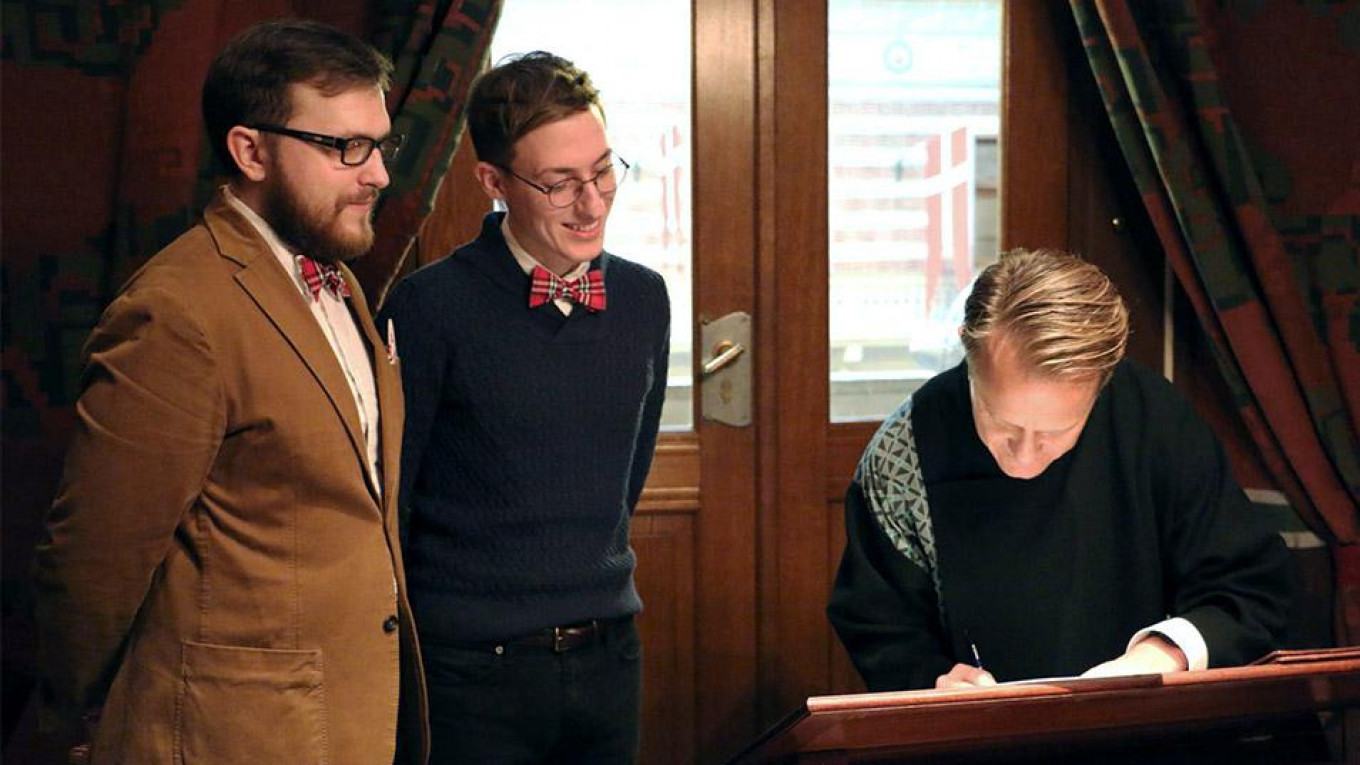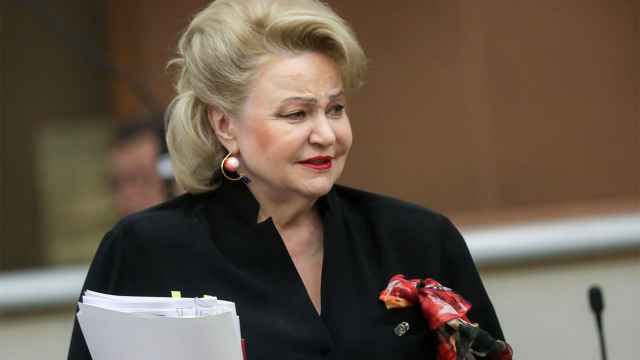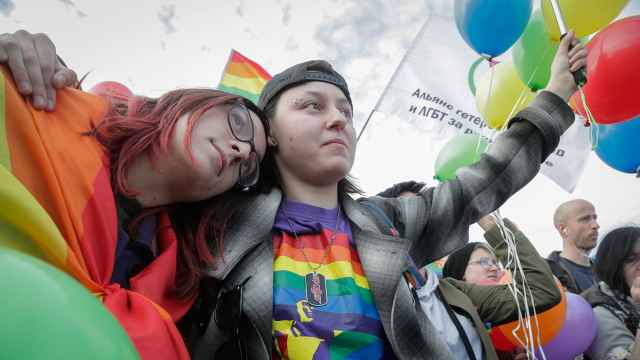In today’s Russia, the authorities do not tolerate criticism. And they are prepared to use force against anyone who exposes their shortcomings.
The story of a gay couple whose marriage was recognized in Russia on the basis of a Danish marriage certificate — and then found themselves embroiled in an administrative storm — is a classic example of this rule. Any ambiguity between the government and its citizens is always resolved in the state’s favor.
On Jan. 4, Russian citizens Pavel Stotsko and Yevgeny Voitsekhovsky registered their marriage in Copenhagen, Denmark, where same-sex unions have been legal since 2012.
Almost three weeks later, on Jan. 26, the pair presented a notarized translation of that marriage certificate to a civil service center in Russia to get marriage stamps in their passports in accordance with family law.
Their request was legitimate: Russian law recognizes foreign marriages if they are deemed legal by the country where the marriage took place. Plus, the men were not already married, closely related, or mentally ill. The Russian clerk who approved the union was simply carrying out official duties.
Even Stotsko and Voitsekhovsky were surprised at how easy the process was.
Within 24 hours, however, the system was back to its former ways: police showed up at their apartment and the two were charged with “the deliberate damaging of personal documents.” They began receiving threats.
The clerk and her superior faced dismissal and the documentation center distanced itself from the stamps it had issued. A high-ranking police official personally called on the men at their apartment to demand that they return their “damaged” passports.
We can only assume that from the government’s point of view the couple at that moment presented the most pressing threat to public order in Moscow.
From a legal standpoint, however, Stotsko and Voitsekhovsky did not break any rules. Back in 1995 when the Family Code was adopted, nobody imagined that people might one day attempt to register same-sex marriages.
Although the spirit of the law might indicate that it applies only to heterosexual unions, the letter of the law does not. By issuing the stamp, the documentation center and its clerk were only doing their official duty.
It is unlikely that the gay men were actually hoping to wrap the state around their little fingers and tweak the noses of Russians who fear any departure from patriarchal norms more than they do war.
Most same-sex couples hoping to register their marriage are actually pursuing more prosaic goals like the ability to take out a joint mortgage, the right to be admitted to the emergency room if the partner falls ill, etc. — in short, the privileges now available only to heterosexual spouses.
There is no doubt that the authorities will correct this legal loophole in the near future by introducing a new prohibition, as they did when they discovered there was no rule against car racing.
Today, freedom is more likely just a temporary legislative oversight than the rule.
Maria Zheleznova is a journalist at Vedomosti, where this article was first published. The views and opinions expressed in opinion pieces do not necessarily reflect the position of The Moscow Times.
A Message from The Moscow Times:
Dear readers,
We are facing unprecedented challenges. Russia's Prosecutor General's Office has designated The Moscow Times as an "undesirable" organization, criminalizing our work and putting our staff at risk of prosecution. This follows our earlier unjust labeling as a "foreign agent."
These actions are direct attempts to silence independent journalism in Russia. The authorities claim our work "discredits the decisions of the Russian leadership." We see things differently: we strive to provide accurate, unbiased reporting on Russia.
We, the journalists of The Moscow Times, refuse to be silenced. But to continue our work, we need your help.
Your support, no matter how small, makes a world of difference. If you can, please support us monthly starting from just $2. It's quick to set up, and every contribution makes a significant impact.
By supporting The Moscow Times, you're defending open, independent journalism in the face of repression. Thank you for standing with us.
Remind me later.







